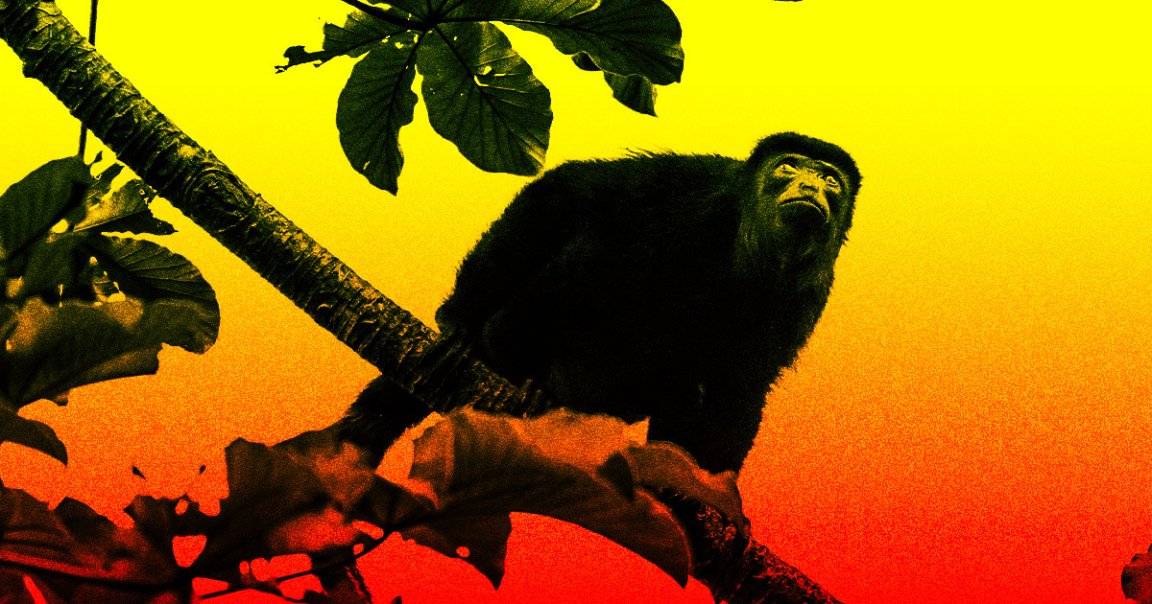
Mother Goosebumps
Mexico is so hot that vulnerable howler monkeys are dropping dead from trees.
Brutal and ongoing heatwaves have been tearing through Mexico, tragically claiming over two dozen confirmed human lives since March. And now it seems that animals aren’t immune from the dangerous weather, either: Reuters reports that at least 83 howler monkeys have died in the Mexican state of Tabasco due to the staggeringly — and unnaturally — high temps, even falling out of trees as they succumb to heatstroke and dehydration.
“It is because the heat is so strong,” Mexican President and Tabasco native Andres Manuel Lopez Obrador told Reuters when asked about the monkey deaths. “I’ve been visiting the states for a long time and I have never felt it as much as now.”
Temperatures in the region show no signs of slowing down, and are this week expected to surpass a staggering 113 degrees Fahrenheit. (The typical May temperature for Tabasco is under 100 degrees Fahrenheit.)
“They were falling out of the trees like apples,” Tabasco-based wildlife biologist Gilberto Pozo told The Associated Press, who recalled counting 83 dead and dying monkeys as they lay on the ground. “They were in a state of severe dehydration, and they died within a matter of minutes.”
Canaries and Coal Mines
Five lucky monkeys were reportedly rescued, and are recuperating under the care of local veterinarian Sergio Valenzuela.
“They arrived in critical condition, with dehydration and fever,” Valenzuela, explaining that he revived the critters with ice and IVs, told the AP. “They were as limp as rags. It was heatstroke.”
Known for their loud bellowing, howler monkeys are critical to the Tabascan ecosystem. In a way, the herbivorous primates are like natural gardeners, working to both prune and replenish the forest as they eat their way through leaves, branches, and seed-packed fruits of regional trees and plants. As Pozo told the AP, however, these important creatures are not only suffering from drought-inducing high temperatures, but from habitat and food source loss caused by deforestation and forest fires as well.
In other words, the region’s howler monkeys, which were already suffering from a lack of food, water, and shelter before the extreme heat settled in, are being battered on multiple intersecting fronts. And as Pozo told the AP, their grisly fate might well be a warning flare of grim, humankind-wrought ecological events to come.
“This is a sentinel species,” Pozo told the AP. “It is telling us something about what is happening with climate change.”
More on climate change: A Single Herd of Bison Can Help Capture CO2 from over 40,000 Cars, Scientists Find